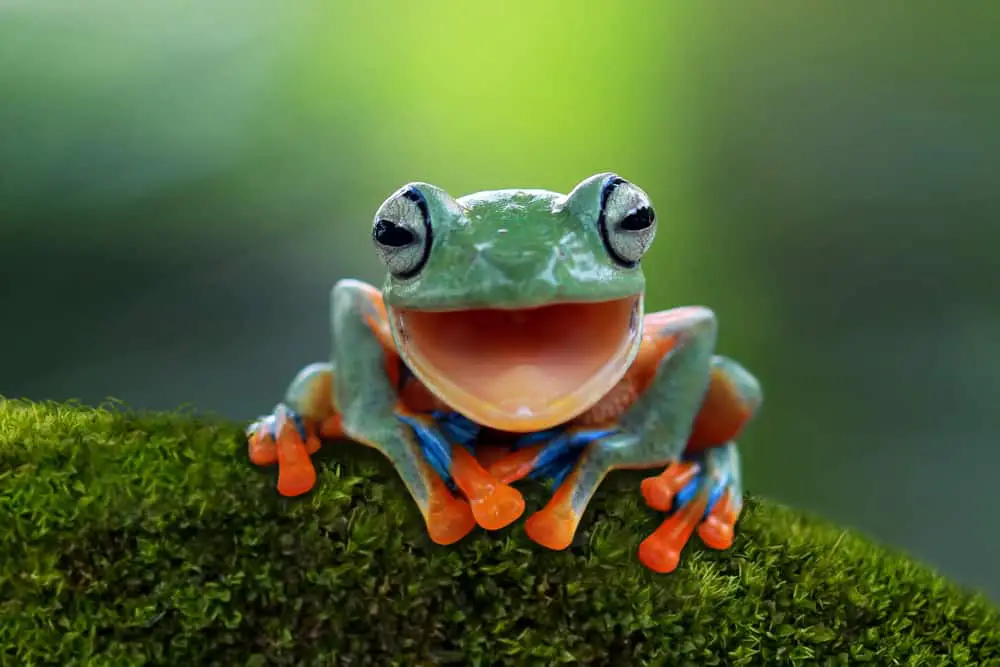
We humans have always been fascinated by nature and its oddities. What more excellent example of this do we find than frogs and toads with their incredible lifecycles? It’s a small wonder that frogs found their way into mythology and other belief systems. But, just what do frogs symbolize?
Although there are some variations, most cultures view frogs as a symbol of Fertility, Prosperity, Transformation (and Rebirth), Purity, and an omen regarding water. Through associations and mysticism, frogs have come to represent different deities, changes of life, and good and bad omens.
Frogs and toads have been in contact with humans since time memorial. But how do the various cultures and nationalities interpret the presence and imagery of frogs? Where exactly did these symbols come from, and what led to them? And are they good or bad associations?
Table of Contents
- The Symbolism Of Frogs Explained
- Different Cultures And Their Interpretations Of Frogs
- Frogs In Your Dreams
- What Do Frogs Symbolize In Nature
- Conclusion
The Symbolism Of Frogs Explained
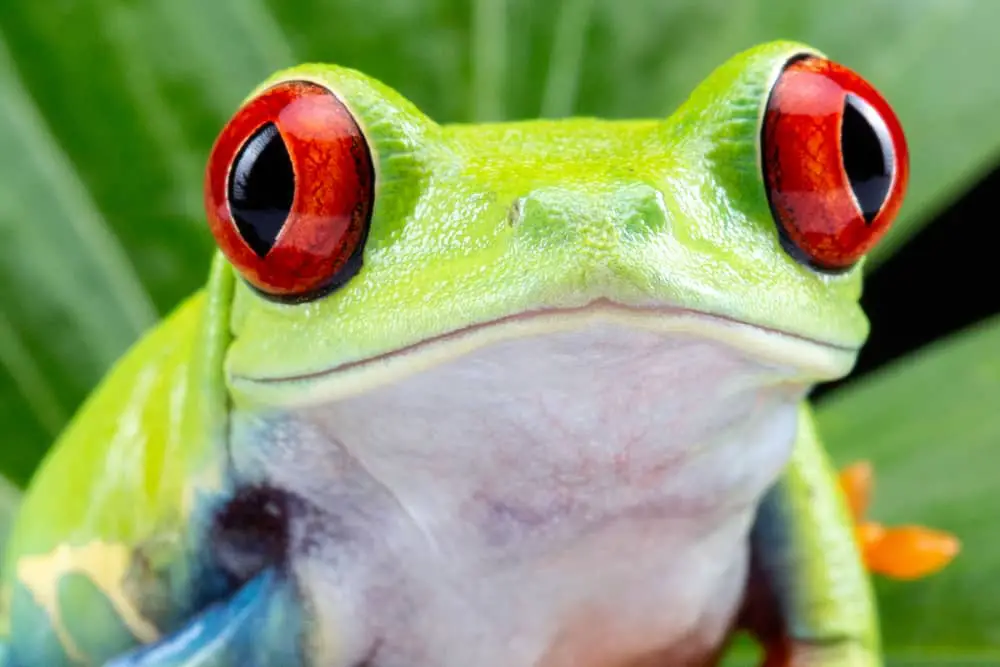
The majority of symbolism surrounding frogs and toads came about through associated events and/or the amphibians’ characteristics.
For example, frogs undergo a process of metamorphosis during their lifecycle.
Many people have interpreted this as a symbol of transitioning into the next phase of life.
Other aspects, such as frogs’ close connection to water, their emergence in spring after the winter snows, and their ability to breed prolifically, have caused people to seek omens when they come across a frog in one way or another.
Although not all cultures and creeds agree outright, some symbolisms are commonly found regarding frogs and toads.
Fertility
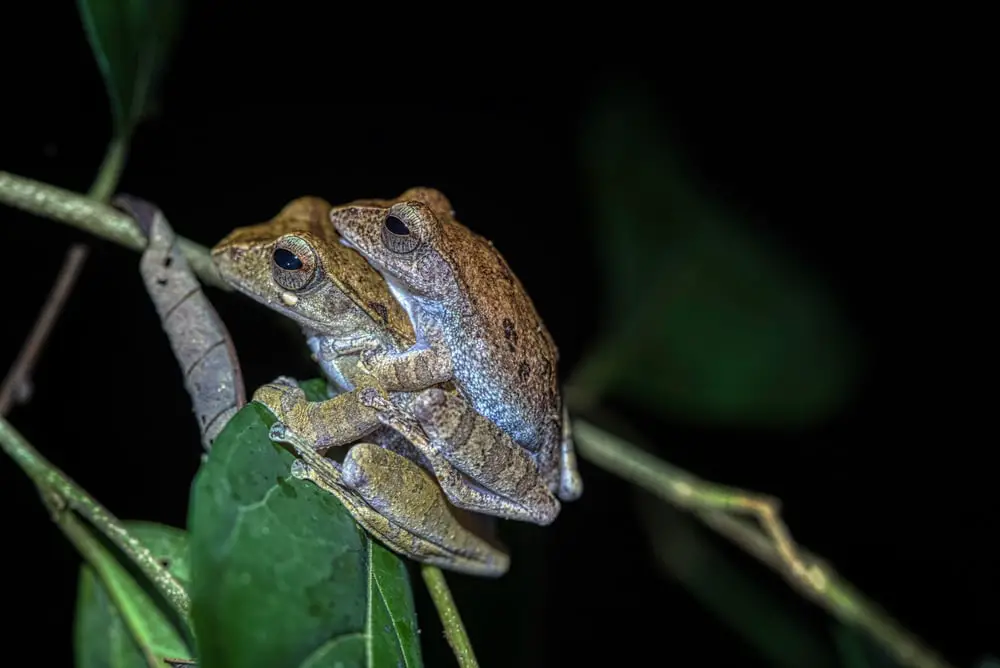
Frogs across many mythologies and cultures have been associated with fertility. Not too surprising when the cane toad (Bufo marinus) laid a Guinness World Recorded amount of eggs at 35 000 in one go!
The close connection that frogs have to water also lends itself to the idea of fertility, as water is also a symbol of life and life-giving.
In Ancient Egypt, one of the significant contributors to this symbolism’s origins, the Nile River would flood its banks every year, enriching and fertilizing the river banks for the next year of farming. This would also, however, bring scores of frogs to the river banks. This association would have fueled the link to fertility.
Prosperity
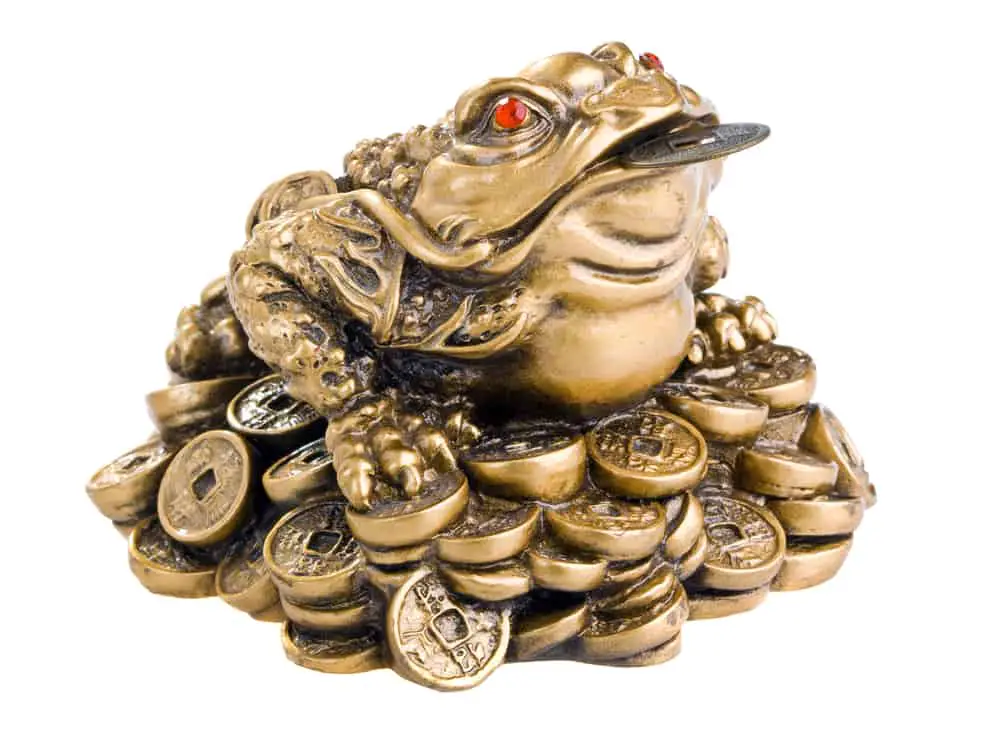
Linked closely to fertility is the symbol of abundance or prosperity that frogs have.
Aside from the Nile River example, in Ancient China, there was thought to have been a three-legged frog named “Jin Chan.”
People believe that if you see this frog at night around a shop or home during a full moon, the residents will be prosperous and have good fortune/receive goodness.
Transformation, transition, and rebirth
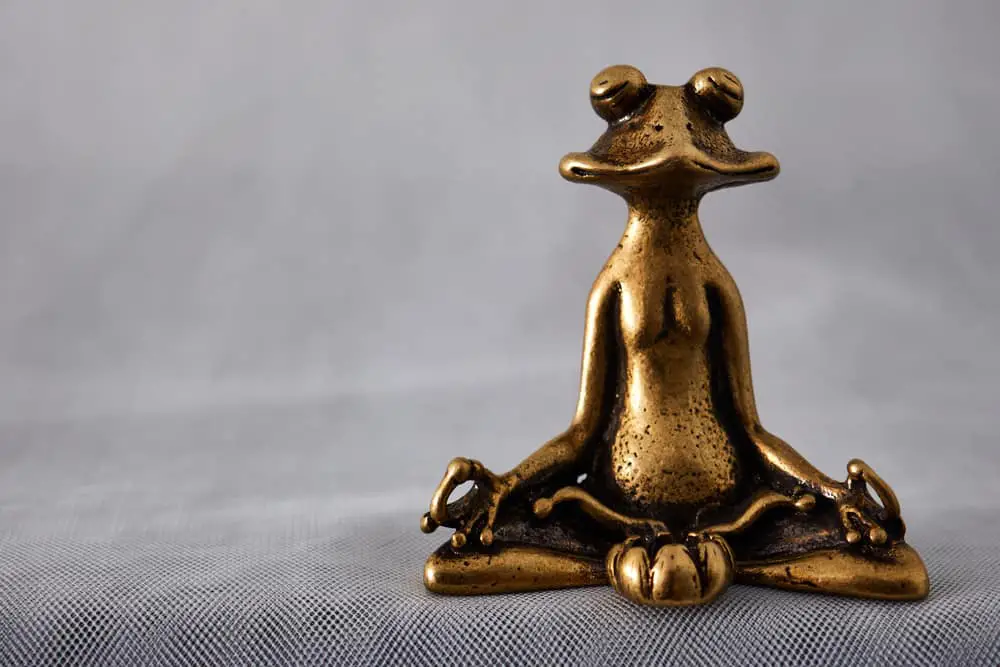
Just like how a frog undergoes its metamorphosis, some people believe that the frog symbolizes a transition or transformation into new things in life. This could be in any aspect of your life, but many people place a lot of stock on spiritual development.
Furthermore, in some places, frogs can be found bursting through the melting snow as spring approaches after a long cold winter. This extraordinary situation is one of the contributing factors to why frogs are considered symbols of rebirth and renewal.
Purity and an Omen for rain

Due to frogs’ link with water, many people feel that they represent purity and renewal. This is partly due to frogs’ metamorphosis, “shedding the old, for the new.”
Some cultures associate the frog with the coming of rain and freshwater as well.
Frogs spend their time divided between water and land, but they always maintain their connection to both. Many people, therefore, feel that frogs are symbolic of a connection to the Moon and the “magical power” associated with it.
The unique lifecycle that frogs and toads undergo, along with some of their impressive traits and habits, have struck awe and fascination in people for thousands of years. As a result, many of the symbols that are associated with frogs come from their traits.
The most significant “link” to these symbols is through the frog as a spirit animal, dreaming of frogs and through totems evoking the “spirit frog.” Some of the symbols are connected to when a frog crosses your path, but most are less physical in essence.
Different Cultures And Their Interpretations Of Frogs
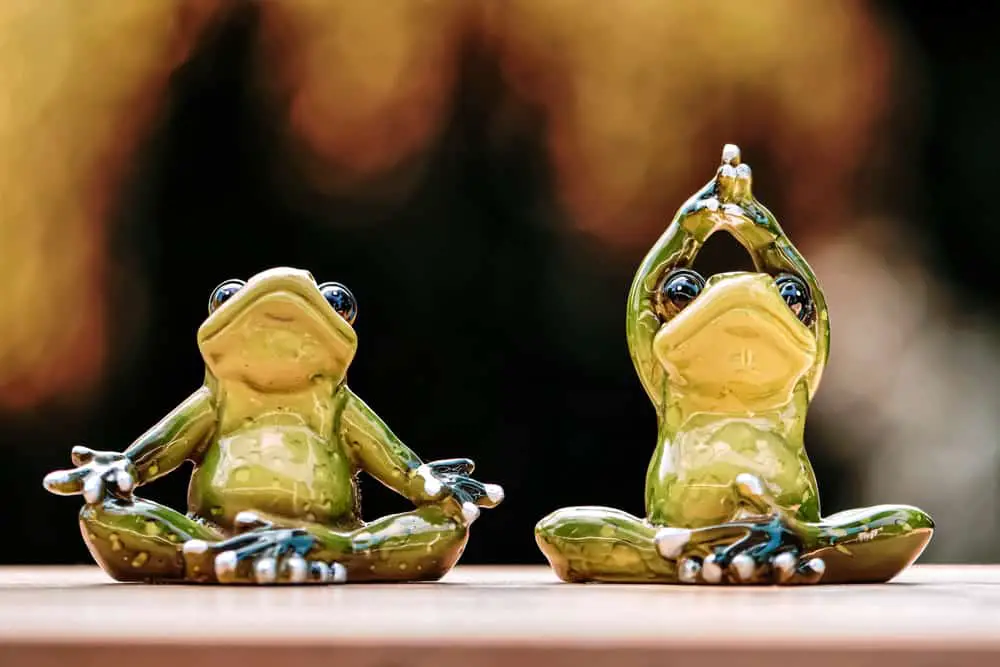
Frogs are not always only seen in a benevolent light. Some cultures are not so agreeable to the thought of frogs in their homes, while others are happy to have a frog or effigy of a frog for good luck.
Below we will look at some of the various symbolisms of frogs and toads to different cultures.
North America
First on the list are the Native American’s and their mixed bag of symbolism surrounding frogs.
Some tribes believed that frogs were a symbol of growth, rain, renewal, and freshwater.
For example, tribes in some of Appalachia believe that hearing a frog at midnight was a sure sign of rain, while other tribes believe that it signified the exact opposite.
Other tribes, however, see the frog as a harbinger for misfortune and illness.
Mesoamerica
In Aztec mythology, things get intense. They believed that Tlaltecuhtli was the earth-mother goddess, and she was (more or less) a frog. She was notably associated with fertility, death, and rebirth.
After Tezcatlipoca and Quetzalcoatl tore her in half, her top half became the heavens while her bottom half became the world, where all life came from.
China
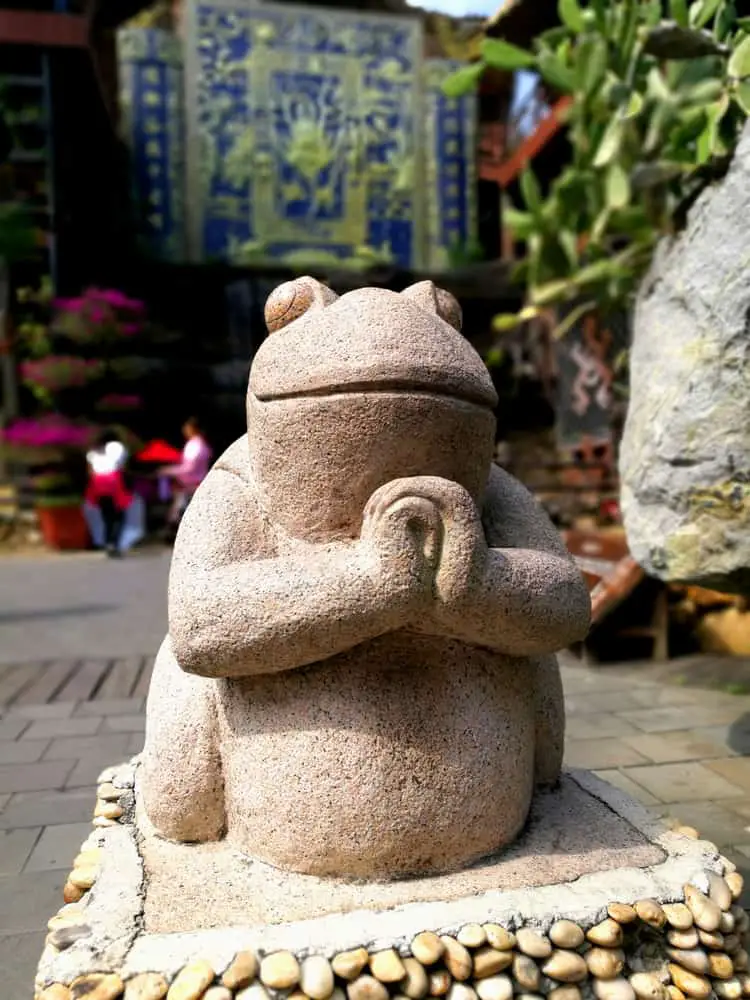
Aside from the three-legged frog (Liu Chang) that grants prosperity, some Chinese people believed that there was a frog on the Moon and that when an eclipse happened, it was the frog swallowing the Moon.
The frog is “yin,” a female-orientated force, while the Moon is the supreme example of “yin,” which is why there is a frog there.
Japan
Some Japanese people associate the frog as a symbol of good luck and prosperity.
According to myth, a legendary ninja by the name of “Jiraiya” rides on a giant frog, and he also has the ability to shapeshift into one.
Egypt
One of the most significant contributors to frog mythology and symbolism was the ancient Egyptians.
The frog-headed goddess Heket was the ruler of the waters and closely associated with fertility and prosperity.
Hequit, the midwife goddess, is another example of frogs being cast into stone.
Egyptian women would often wear frog-themed bracelets and other jewelry to garner favor in these areas.
South Africa
A different theme is found in South Africa, where some local tribes believe that frogs are an omen of witchcraft, curses, and bad luck, especially if one were to come into your house, it may have been sent by an enemy.
Other African tribes believe that killing a frog brings drought to the land.
Australia
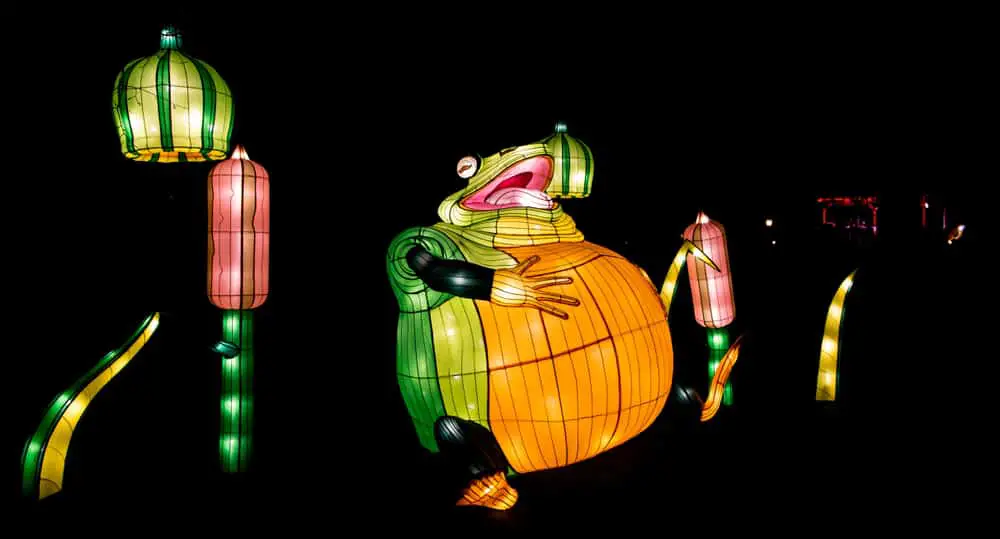
The aboriginal people of Australia have a story of a giant thirsty frog (Tiddalik), who one day woke up and drank all the water from the land and plants.
It was only by the plan enacted by the wise owl and his eel accomplice that caused the frog to laugh and water everything again.
Frogs in Christianity
In the book of Exodus of the Christian Bible, Frogs were used as punishment against Pharaoh and the Egyptian people for their treatment and refusal to release the Hebrew people from slavery.
Further in the book of Revelation, the Apostle John saw three frogs fall from the mouths of the dragon, the beast, and the false prophet, at the end of times.
Frogs In Your Dreams
We’ve looked at the symbolism of spirit animal frogs, what frogs meant in mythology and to various cultures, but what does it mean if you dream about frogs?
Well, every person’s dreams are personal and individual, but some commonly agreed-upon scenarios and meanings include:
- A transition or a transformation is coming. Again we think of the metamorphosis that frogs undergo.
- Another option is that you may be able to expect prosperity in your future.
- Black toads could mean you fear or detest the idea of doing something in your waking life.
- A white frog could mean that the person you have romantic feelings for does not share those feelings for you.
- A frog in your house could mean that people are speaking behind your back/spreading rumors about you.
What Do Frogs Symbolize In Nature
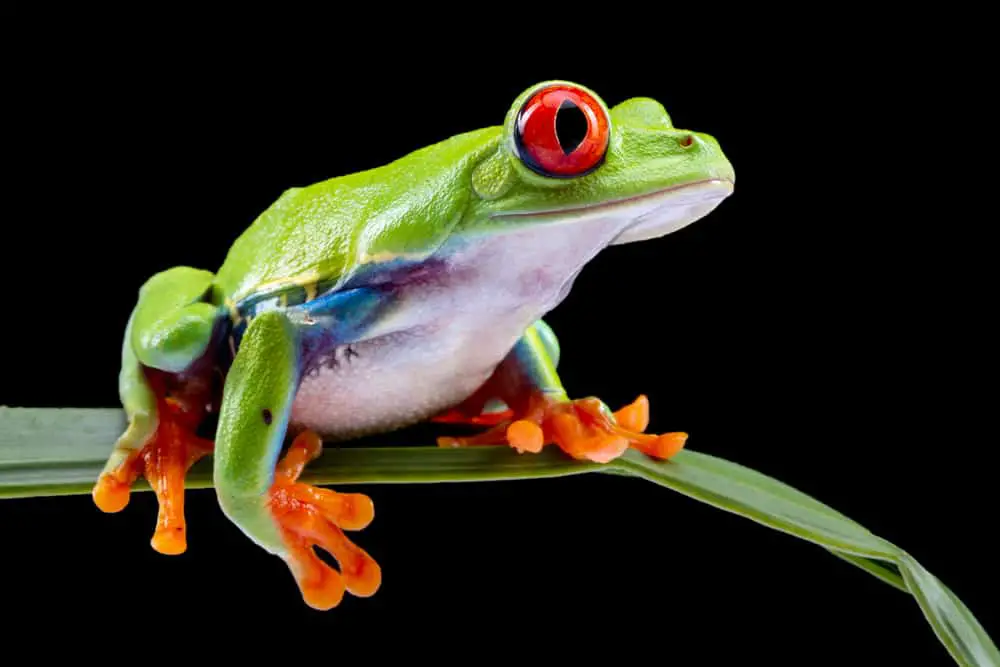
From a different perspective, frogs are a great indicator species in streams and water bodies as to the level of pollution and contamination.
Frogs are generally sensitive to eutrophication of water bodies and pollution and will leave these areas when conditions are bad.
So if there are frogs present, the “symbolism” is that the water body is low in pollution and has a functioning ecosystem.
Conclusion
Frogs have been around since long before we humans have, and as with most of nature, we are fascinated by them. As a result, we have ascribed certain mythological, magical, and spiritual characteristics to frogs.
Whatever your reason and viewpoint, frogs are amazing creatures that deserve our protection and continued interest.
Sources:
Uniguide: Frog Symbolism, Meanings & The Frog Spirit Animal
World Birds: Frog Symbolism
Exploratorium: Frog Folklore
Ancient Pages: Legend Of Jin Chan: The ‘Golden Toad’ – Money Frog That Brings Luck And Is A Feng Shui Charm

